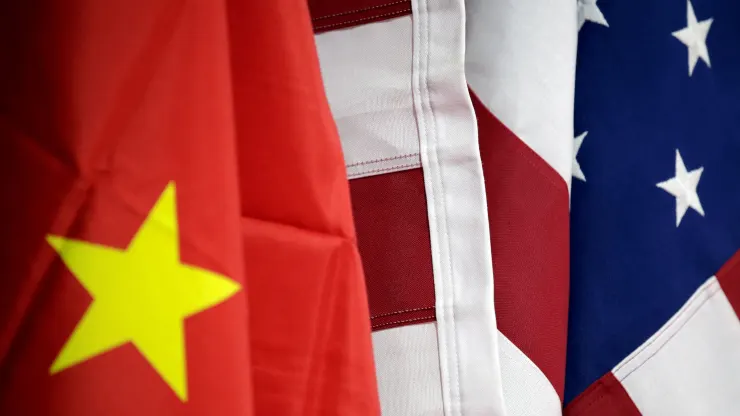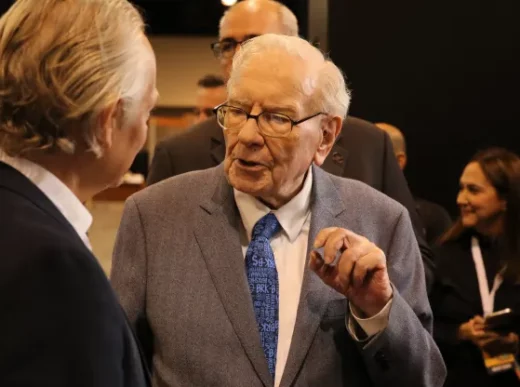In a candid and insightful address at Forbes’ U.S.-China Business Forum, Xie Feng, China’s ambassador to the United States, shed light on the intricate relationship between China and the U.S. in terms of trade and its ongoing challenges. Amid a backdrop of complex global dynamics, Xie underscored the pronounced drop of 14.5% in China-U.S. trade during the first half of the year, compared to the previous year. He attributed this downturn to the multifaceted implications of U.S. tariffs and export controls.
Challenges Unveiled: The Trade Decline and Its Causes
The palpable decrease in China-U.S. trade during the initial half of the year stands as a stark testament to the far-reaching consequences of U.S. policies. Xie vividly depicted the impact, emphasizing that this decline is directly correlated with the U.S.’s implementation of Section 301 tariffs on Chinese imports and its enforcement of unilateral sanctions. Furthermore, the tightening grip on export controls further exacerbated the strain on trade relations. Xie spotlighted the casualties of these actions, revealing the distressing fact that many families and businesses on both sides of the spectrum bore the brunt of these measures.
Analyzing Trade Partnerships and Decline Magnitude
China’s bilateral trade ties with the U.S. hold significant implications, given the latter’s status as China’s largest trading partner when it comes to individual countries. An astute look at year-to-date figures reveals that the downward trajectory continued in July, with a staggering 15.4% decline compared to the corresponding period in the previous year. These figures, derived from China’s customs data, point toward a sustained trend of declining trade dynamics.
The Broader Implications: Risk of Decoupling
Xie’s concerns echo those of economic experts, highlighting the perils of any potential decoupling between China and the U.S. The ambassador lucidly encapsulated the imminent risks, noting that such a scenario could birth instability and hinder prospects of cooperative endeavors. The undercurrents of his message emphasized that to sever ties with China is tantamount to shutting doors on avenues of opportunity, collaboration, stability, and growth. The robustness of future collaborations hinges on the ability to address challenges without resorting to disengagement.
Navigating Forward: Reconciliation and Prosperity
To navigate through the challenges posed by these turbulent times, Xie stressed the importance of forging a comprehensive path toward expanding economic cooperation and trade. He urged the pursuit of pragmatic strategies, even if they appear incremental. Concrete steps, regardless of their scale, must pave the way for a harmonious relationship. These steps include facilitating ease of travel between the two nations and rejuvenating agreements that focus on collaborative endeavors in the realm of science and technology.
Global Dominance and Foreign Investment
In his address, Xie didn’t shy away from showcasing China’s global prominence in various sectors, particularly in industries like electric vehicles. Notably, he highlighted the heightened foreign investments from countries such as France, the U.K., and Japan in China during the first half of the year. Expressing the desire to safeguard and bolster foreign investments, Xie underscored the commitment to uphold national treatment for foreign-invested enterprises.
Response to U.S. Policies: Executive Orders and Their Ramifications
An overarching concern that has caused a stir is the series of executive orders from the U.S. aiming to restrict investments in Chinese technology companies due to perceived national security threats. Xie lambasted these moves as a violation of the principle of free trade. The ambassador was resolute in asserting that such restrictive measures could hinder the growth and development of American businesses in China, rather than containing China’s technological advances.
A Call for Predictability and Level Ground
As U.S. Commerce Secretary Gina Raimondo embarked on a trip to China, she interacted with over a hundred businesses, finding a consensus that investing in China has grown perilous due to mounting uncertainties. These businesses expressed their desire for a more predictable, level playing field for their endeavors. The essence of stability, transparency, and equitable opportunities echoed through Raimondo’s insights, reinforcing the message of Xie’s call for a comprehensive recalibration of trade relationships.
In essence, the China-U.S. trade relationship is navigating challenging waters. It’s evident that trade fluctuations are intrinsically tied to multifaceted global dynamics and policy decisions. Moving forward, a concerted effort to preserve the spirit of collaboration, mutual benefit, and equitable trade is vital to ensuring stability, prosperity, and enduring growth.















